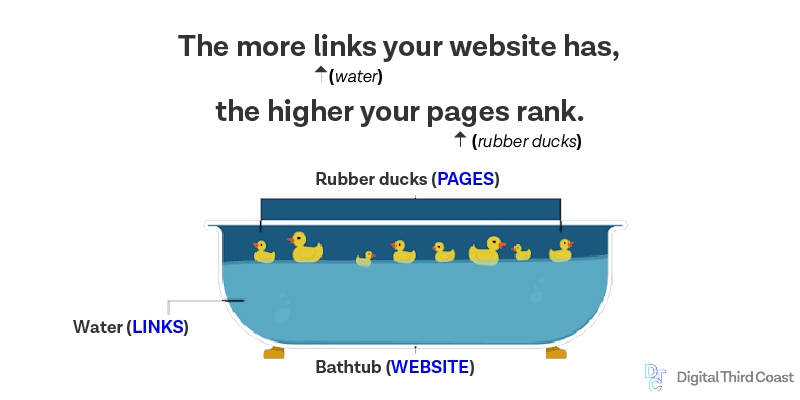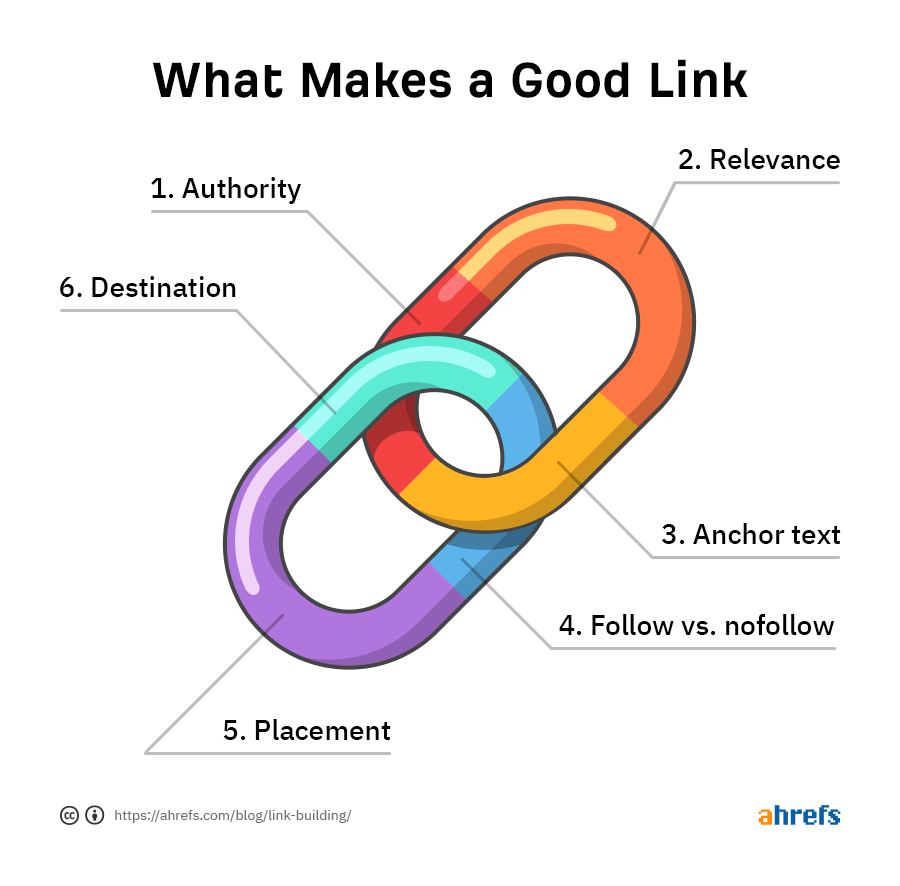Off-page SEO can be a daunting task for digital marketers, as it involves navigating a complex landscape of do’s and don’ts. There seems to be an endless array of ways to make mistakes, and it can be hard to know which approach will yield the desired results without running afoul of Google’s guidelines.
At its core, off-page SEO is about building links to your website, and this remains a critical component of any successful SEO strategy.
Links are vital for helping search engines discover and recognize your content. However, while links are important, it’s equally important to avoid creating them in ways that violate Google’s rules.
Google’s own guidance on SEO tends to focus more on on-page optimization, leaving many marketers to wonder how to tackle off-page SEO effectively. Nonetheless, with careful planning and a pragmatic approach, it’s possible to build a successful off-page SEO strategy that meets Google’s guidelines and drives business success.
In this article, we’ll explore the fundamentals of off-page SEO and why it’s crucial for the success of your website.
What is Off-page SEO?
Off-page SEO refers to the various strategies and techniques that are used to improve a website’s ranking and authority outside of the website itself.

While link building is often seen as a key component of off-page SEO, there are many other promotional activities that can be used to enhance a website’s reputation and visibility. These can include tactics such as press exposure, social media marketing, and guest posting on other websites.
Off-page SEO is important because it helps to increase a website’s online presence and brand awareness, which can ultimately lead to better search rankings and more traffic over time.
While the impact of off-page SEO on search rankings may not be immediate, it can have a significant long-term effect on a website’s visibility and success.
On-Page SEO vs. Off-Page SEO
On-page SEO and off-page SEO are two different strategies used in search engine optimization to improve a website’s visibility and ranking on search engine result pages (SERPs).
As the above definition makes clear, on-page SEO involves techniques that you can implement directly on your website, such as keyword research, optimizing your content, and meta tags. Because you have complete control over your website, you can make changes or optimizations as you see fit.
On the other hand, off-page SEO refers to factors that exist outside of your website, such as inbound links and social media activity. While you can certainly influence these factors, you cannot directly control them. This means that even if you have created an outstanding website with excellent on-page SEO, your off-page SEO will be subject to external factors beyond your control.
From an SEO perspective, this means that it’s important to focus on both on-page and off-page factors to achieve the best possible results. While you have more control over on-page SEO, off-page factors can also have a significant impact on your website’s search engine ranking. Therefore, it’s important to balance your efforts between the two and work on improving both in order to achieve the best possible outcomes for your website’s SEO.
Why Off-page SEO is So Important?
Off-page SEO is an essential aspect of search engine optimization that cannot be ignored. This strategy focuses on activities that take place outside the website but have a significant impact on its ranking and visibility.
One of the critical elements of off-page SEO is link building, which refers to the process of acquiring backlinks from other high-authority websites.
The importance of off-page SEO lies in the fact that search engines view backlinks as a vote of confidence from other websites. In other words, the more backlinks a website has, the more trustworthy and authoritative it appears in the eyes of search engines. As a result, search engines are more likely to rank the website higher in the search results, leading to increased organic traffic.
Without off-page SEO, a website may struggle to gain traction and attract organic traffic, regardless of the quality of its on-page SEO optimization.
Off-page SEO provides forward momentum to a website by improving its visibility and ranking for relevant keyword phrases. The more high-quality backlinks a website has, the more likely it is to rank higher for a broader range of search queries, leading to increased organic traffic and ultimately, higher revenue potential.
Elements of Off-page SEO
- Link Building
- Blogging
- Content Marketing
- Social Media Marketing
- Social Bookmarking
- Local SEO
- Influencer Outreach
- Guest Posting
- Online Reputation Management
- Reviews
- Events
Link Building
Off-page SEO techniques aim to improve the visibility and reputation of a website through external activities, such as link building. One of the most popular off-page SEO strategies is backlinking, which involves acquiring links from reputable websites to your own website.
The benefits of backlinking are twofold.
Firstly, it can drive referral traffic to your website, which can lead to increased brand awareness, engagement, and ultimately conversions.
Secondly, backlinks are considered a strong signal of trust, authority, and expertise by search engines, which can positively impact your website’s search engine ranking and visibility. As shown in the picture below:

Image by: Digitalthirdcoast
Links are also important for improving the user experience of your website. By providing links to other relevant and useful information, you can make it easier for users to navigate and find what they’re looking for.
Types of Links
Off-page SEO relies heavily on links, which play a crucial role in determining a website’s authority and reputation. To effectively build or earn backlinks, it’s important to understand the various types of links and how they impact your website’s equity.
There are three primary types of links that you need to be aware of:
- Organic or Natural Links
- Manual Links
- Self-Created Links
Organic Links
These are also known as natural links and are the most valuable type of links. Organic links are links that come to your website organically, without any action taken by your team to earn them.
For instance, someone may link to your content because they find it useful or interesting, without any direct outreach from your team. These links are considered valuable and trusted by search engines because they reflect the natural interest and authority your content has earned from others.
Manual or built Links
Manual links, on the other hand, are links that your team has actively worked to earn through outreach to webmasters, publishers, or journalists. This may involve promoting your content through social media, email outreach, or other means. Manual or built links can be valuable, but they require more effort and strategy to secure.
Self-created Links
Self-created links are links that your team has intentionally created by submitting your website to directories, forums, or press releases. While this tactic may be easier and more direct, it’s generally considered a black-hat SEO practice that can harm your website’s reputation and ranking in the long run.
When it comes to link building, it’s important to focus on natural or built links. These types of links reflect the value and authority your content has earned, and they are more likely to be seen as legitimate and valuable by search engines.
By creating valuable and relevant content and building relationships with other website owners and influencers, you can increase the chances of earning high-quality natural or built links to your website.
Off-page SEO Strategies for Link Building
But the question is how do you attract high-quality backlinks to your website?
To earn links from others, you can adopt a number of off-page SEO strategies. There are several ways to earn links to your website, such as
- Joining associations, online communities, and forums
- Creating high-quality content
- Reaching out to bloggers and journalists
- Promoting your content on social media
However, not all links are created equal. Links from influencers and authoritative sources in your audience’s community carry more weight than those from low-quality, spammy sites. These high-quality links signal to search engines like Google that your site is knowledgeable and deserves a higher ranking.
Tools
To ensure the success of your off-page SEO strategy, regularly check your backlinks and use tools like Ahrefs, Moz Link Explorer, SEMrush, Buzzsumo, and Ubersuggest to analyze your and your competitors’ backlink profiles.
Factors Affecting Link Building

Image by: Ahref
The equity of a link is influenced by various factors, such as
- Relevancy of the linking site
The linking site should be relevant to your website’s content. If the linking site is not related to your site, the link may not carry as much weight.
- Authority of the linking site
The authority of the linking site is an important factor. If the linking site is reputable and has high authority, it will give your website more credibility.
- Anchor text of the link
The anchor text is the clickable text of a hyperlink. It tells the search engine what the linked page is about. Using relevant and descriptive anchor text helps search engines understand the content of your site.
- Link placement on the linking page
Links placed in prominent locations on a page tend to carry more weight than links placed in less visible locations.
- Link freshness and recency
Fresh links are seen as more valuable than old links. The recency of a link also helps search engines determine the relevance of the link.
- Diversity of link sources
Having links from a variety of sources helps to establish your website as a credible and authoritative source.
- Social signals
Social signals from social media platforms can help to drive traffic to your website and improve your search engine ranking.
- Link neighborhood
Links from a website’s “neighborhood,” or the sites it is linked to, can also impact the credibility and authority of a website.
- Link context:
The context in which a link appears is also important. Links that appear in relevant and high-quality content tend to be more valuable.
- Linking domain age
Links from older domains are generally seen as more valuable than links from newer domains.
- Linking page content
The content of the linking page should be related to the content of your website. This helps search engines understand the relevance of the link.
- Linking page and domain relevance
The relevance of the linking page and domain to your website’s content is important. Links from irrelevant sources may not carry as much weight as links from relevant sources.
By understanding the different types of links and the factors that impact link equity, you can develop a strong off-page SEO strategy that helps improve your website’s visibility and authority.
Blogging
Blogging is a very effective off-page SEO technique. A blog is a platform where you can share your insights and expertise on various topics related to your industry. By consistently producing high-quality, valuable, and shareable content, you can attract readers, build your reputation, and earn natural links from other websites.
Blogging helps you establish your brand as a thought leader in your industry, which can attract a loyal following of readers who will be more likely to share your content and link back to your website. These natural links signal to search engines that your website is authoritative and trustworthy, which can positively impact your search rankings.
Moreover, blogging provides you with an opportunity to engage with your audience through comments, social media shares, and email subscriptions. By responding to comments and creating a community around your brand, you can build brand awareness, loyalty, and trust.
Content Marketing
Content marketing is a critical element of off-page SEO that involves creating valuable and engaging content that can attract and retain an audience. By using a mix of different content types such as videos, infographics, and blog posts, businesses can leverage various social media platforms to reach their target audience.
Repurposing Your Content for Maximum Reach and Engagement
In today’s fast-paced digital world, businesses must find creative ways to repurpose their content to reach a broader audience. This can include turning a blog post into a podcast, creating an infographic to summarize your findings, or even transforming your content into a video tutorial.
Utilizing Social Media to Amplify Your Content Marketing Efforts
Social media platforms such as Facebook, Twitter, Instagram, LinkedIn, and Pinterest are excellent tools for promoting your content and driving traffic to your website. By leveraging the unique features of each platform, you can create targeted campaigns that resonate with your audience and encourage them to engage with your content.
The Importance of Consistency in Your Content Marketing Strategy
To build a loyal following and establish yourself as an authority in your industry, consistency is key. By regularly publishing high-quality content that addresses your audience’s pain points and provides value, you can cultivate a relationship with your audience that lasts.
Measuring the Success of Your Content Marketing Efforts
To ensure that your content marketing efforts are paying off, it’s essential to track your metrics and measure your success. This can include analyzing your website traffic, social media engagement, and conversion rates to determine which content pieces are resonating with your audience and driving the most value for your business.
Social Media Marketing
Social media marketing is an off-page SEO element that involves using social media platforms to promote your brand, products, or services, and engage with your target audience. While social media links may not directly impact your website’s search engine rankings, social media marketing can still play a crucial role in driving traffic to your site, building brand awareness, and improving your overall online presence.
Wider Reach
One of the most important benefits of social media marketing is the ability to reach a wider audience and generate more exposure for your brand. By creating engaging content and sharing it on social media platforms like Facebook, Twitter, LinkedIn, and Instagram, you can attract new visitors to your site and increase your brand’s visibility in the online marketplace.
Building Community
Social media marketing also allows you to build valuable relationships with your audience and establish your brand as a trusted source of information and resources. By responding to comments and messages from your followers, you can foster a sense of community and create a loyal fan base that will help spread the word about your brand.
Authenticity
In today’s digital landscape, consumers crave authenticity and transparency from the brands they engage with. By being honest, transparent, and responsive on social media, you can build trust with your audience and establish your brand as a reliable source of information and resources.
In addition, social media marketing can help you keep up with the latest trends and developments in your industry, and stay on top of what your competitors are doing. By monitoring social media conversations and tracking the performance of your campaigns, you can gain valuable insights into what’s working and what’s not, and adjust your strategy accordingly.
Social Bookmarking
Social bookmarking is an off-page SEO technique where users save and share web pages, blog posts, articles, images, and videos on social bookmarking sites such as Reddit, Digg, StumbleUpon, Delicious, and others. These sites allow users to create bookmarks or collections of web pages that they find useful or interesting and share them with others.
In the context of SEO, social bookmarking involves submitting links to these social bookmarking sites to increase the visibility of your website and its content. By submitting links to high-quality social bookmarking sites, you can potentially attract traffic to your website, increase your online presence, and improve your website’s search engine rankings.
The importance of social bookmarking
The importance of social bookmarking as an off-page SEO element can vary depending on the website and the industry. While social bookmarking may not be as important as other SEO tactics such as link building or content marketing, it can still be a valuable strategy for increasing the visibility of your website and attracting traffic.
Benefits of social bookmarking
One of the key benefits of social bookmarking is that it can help increase the number of backlinks to your website. When users save and share your content on social bookmarking sites, they create a backlink to your website, which can help improve your website’s authority and credibility in the eyes of search engines.
Another advantage of social bookmarking is that it can help you reach a wider audience. Social bookmarking sites are often used by people looking for new and interesting content, so by submitting your links to these sites, you can potentially attract new visitors to your website and expand your reach.
While social bookmarking may not be the most critical off-page SEO element, it can still be a useful strategy for building backlinks, increasing your online presence, and attracting traffic to your website. As with any SEO tactic, it’s essential to use social bookmarking in conjunction with other strategies for maximum impact.
Local SEO
Local SEO is a form of off-page SEO that focuses on optimizing a website to rank higher in local search engine results pages (SERPs). The primary goal of local SEO is to improve the visibility of a website in searches related to a particular geographic area, such as a city, state, or region.
Local SEO typically involves a combination of on-page and off-page optimization techniques, including keyword research, local citation building, online reviews, and Google My Business optimization. By implementing these techniques, businesses can improve their visibility in local searches and attract more local customers.
Importance of Local SEO
Local SEO is incredibly important for businesses with a physical location or a service area. In fact, according to Google, nearly half of all Google searches have local intent, and 76% of people who search for a local business on their smartphone visit that business within 24 hours.
By optimizing their website for local search, businesses can increase their visibility to potential customers in their area and drive more traffic to their websites. This can ultimately lead to more foot traffic in their physical location, more phone calls and inquiries, and more sales.
Furthermore, local SEO can be highly competitive, especially for businesses operating in highly populated areas. As such, it’s crucial for businesses to have a solid local SEO strategy in place to stay ahead of the competition and attract more local customers.
Influencer Outreach
Influencer outreach is a type of off-page SEO strategy that involves reaching out to influential individuals in your industry or niche and collaborating with them to promote your brand, products, or services. Influencers can be bloggers, social media personalities, industry experts, or anyone else with a large following and significant influence over your target audience.
The goal of influencer outreach is to leverage the influencer’s reach and credibility to promote your brand to a wider audience and drive more traffic to your website. This can be done through various types of collaborations, such as sponsored posts, guest blogging, social media takeovers, and more.
Influencer outreach is a powerful off-page SEO strategy because it can help you:
- Increase brand awareness: By partnering with influencers who have a large following and influence over your target audience, you can reach a wider audience and increase brand awareness.
- Build backlinks: When influencers promote your brand or link to your website in their content, it can generate valuable backlinks that can improve your website’s search engine rankings.
- Generate social proof: When influential individuals endorse your brand, it can create social proof and build trust with your target audience.
Influencer outreach requires a strategic approach and careful research to identify the right influencers for your brand. It’s important to choose influencers who align with your brand values and have a genuine interest in your products or services.
Guest Posting
Guest posting, also known as guest blogging, is an off-page SEO technique in which a writer creates content for a website other than their own. The content can be in the form of a blog post, article, or other type of content, and is usually created with the intention of building links back to the writer’s own website.
How does guest posting work?
The way guest posting works is that the writer contacts a website owner or editor and pitches their idea for a guest post. If the website owner or editor agrees, the writer creates the content and submits it for publication on the website. In return, the writer usually gets a link back to their own website within the content or in the author bio.
Importance of Guest Posting
Guest posting is an important off-page SEO technique because it helps to build backlinks to your website, which can improve your search engine rankings. Backlinks are a key factor in search engine algorithms, and having high-quality backlinks from authoritative websites can help to boost your website’s credibility and authority in the eyes of search engines.
In addition to improving your search engine rankings, guest posting can also help to increase your brand awareness and drive traffic to your website. By creating high-quality content that is relevant and valuable to your target audience, you can attract new visitors to your website and establish yourself as a thought leader in your industry.
Guest posting can be a valuable addition to any off-page SEO strategy. However, it’s important to remember that the focus should always be on creating high-quality, relevant content that provides value to your audience, rather than simply using guest posting as a link-building tactic. By approaching guest posting with the right mindset and strategy, you can reap the benefits of this powerful off-page SEO technique.
Online Reputation Management
Online Reputation Management (ORM) is the practice of monitoring, influencing, and managing your brand’s reputation and perception online. As an off-page SEO element, ORM focuses on building and maintaining a positive online reputation for your brand through various strategies and techniques.
ORM works by monitoring what people are saying about your brand online, including reviews, comments, and social media conversations.
By actively listening to your audience, you can identify potential issues or concerns and address them before they become bigger problems. This can involve responding to negative reviews or comments in a professional and empathetic manner, highlighting positive reviews and feedback, and promoting your brand through positive PR strategies.
ORM is important because your brand’s online reputation can have a significant impact on your business’s success. A positive reputation can attract new customers, boost customer loyalty, and increase sales. On the other hand, a negative reputation can drive customers away and damage your brand’s credibility and trustworthiness.
In addition to its impact on your business’s success, ORM is also important for your SEO strategy. Google and other search engines take into account your brand’s online reputation when ranking your website in search results. A strong online reputation can improve your search engine rankings, while a negative reputation can harm your rankings and visibility.
Reviews
Reviews are a type of user-generated content that provide feedback on a product, service, or business. They are typically posted on third-party review sites such as Yelp, Google My Business, and TripAdvisor, but can also be featured on a company’s own website.
As an off-page SEO element, reviews can have a significant impact on a website’s search engine rankings and online reputation. Search engines like Google take into account the quantity and quality of reviews when determining the credibility and relevance of a business.
Positive reviews can also help to build trust with potential customers and increase the likelihood of them choosing to do business with your company. Conversely, negative reviews can damage a company’s reputation and deter potential customers from engaging with the brand.
To make the most of reviews as an off-page SEO element, businesses should encourage customers to leave reviews on relevant review sites and respond to all reviews, both positive and negative. Responding to negative reviews in a professional and helpful manner can demonstrate a commitment to customer service and may even help to turn a dissatisfied customer into a loyal one.
Brand Mentions
Brand mentions are an off-page SEO element that refers to instances where your brand name or product/service is mentioned on other websites, social media platforms, or any other online medium. These mentions may include your brand name, logo, or product/service name, and can occur in various contexts such as news articles, blog posts, social media posts, and online reviews.
Importance of Brand Mentions
Brand mentions are important for off-page SEO because they can help establish your brand’s authority, credibility, and reputation online. When other websites and platforms mention your brand, it signals to search engines that your brand is relevant and trustworthy, which can have a positive impact on your search engine rankings.
Furthermore, brand mentions can drive referral traffic to your website and increase brand awareness, which can lead to more conversions and sales. When people see your brand mentioned on other websites, they may be more likely to click through to your website and learn more about your products or services.
There are various tools available to help you monitor and track brand mentions online. By using these tools, you can stay informed about when and where your brand is mentioned, and respond appropriately to any positive or negative mentions. By building relationships with websites and platforms that mention your brand, you can also potentially secure more opportunities for guest posting or backlinking, which can further improve your off-page SEO efforts.
Events
In the context of off-page SEO, an “event” refers to any activity or happening that takes place outside of your website or blog, but is still relevant to your business or industry. This could include attending or sponsoring conferences, participating in trade shows, hosting meetups or networking events, or any other type of event that brings people together.
Importance of Events
Events are an important off-page SEO element because they offer several benefits for businesses.
Firstly, they provide an opportunity to connect with potential customers, partners, or industry influencers, which can help to build your brand’s reputation and increase your visibility within your industry.
Secondly, events offer a chance to showcase your products or services and gather feedback from potential customers or industry experts. This feedback can help you to refine your offerings and improve your marketing strategy.
In addition, events can also have a positive impact on your website’s search engine rankings. By participating in or sponsoring events, you can often gain backlinks to your site from reputable sources, which can improve your site’s authority and increase its visibility in search results.


